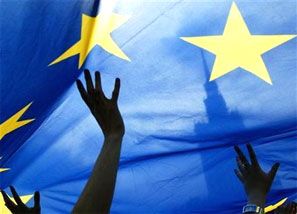European regulators will clamp down on "pay-for-delay" deals in the pharmaceutical sector this month, fining Denmark's Lundbeck, India's Ranbaxy and seven other generic drug manufacturers for limiting access of cheaper products to the market.
Following an inquiry launched in 2009, the European Commission, the EU's anti-trust regulator, will impose a "significant" fine on Lundbeck and lesser fines on Germany's Merck KGaA and seven smaller drug firms when it announces the sanctions later this month, two officials said. The fines underscore the determination of EU and US regulators to break agreements that involve brand name drug companies paying generic manufacturers not to deliver cheaper drugs to the market, a process that ultimately harms consumers.
The fines underscore the determination of EU and US regulators to break agreements that involve brand name drug companies paying generic manufacturers not to deliver cheaper drugs to the market, a process that ultimately harms consumers.
European regulators have estimated that consumers are paying up to 20 per cent more for medicines in some cases.
The Commission can fine a company up to 10 per cent of its global revenue for breaching EU antitrust laws, which in Lundbeck's case would be up to euro 240
The officials Reuters has spoken to have given no indication of the precise size of the fines apart from to say it will be sizeable in Lundbeck's case.
"The fine for Lundbeck is expected to be significant, less so for the others," said one of the people, who declined to be identified because of the sensitivity of the matter.
The other companies to be fined are Generics UK, Arrow, Resolution Chemicals, Xellia Pharmaceuticals, Alpharma, A.L. Industrier and India's No. 1 pharmaceutical company Ranbaxy, all of them makers of generic drugs.
A spokesman for Lundbeck said the company had not been notified of any fine and believed it had done nothing wrong. Lundbeck shares fell 1.9 per cent after Reuters reported the fine.
A Merck KGaA spokeswoman said the company does not comment on pending legal issues. Antoine Colombani, spokesman for competition policy at the Commission, declined to comment.
Additional reporting by Mette Fraende in Copenhagen, Ludwig Burger in Frankfurt












 © 2025
© 2025